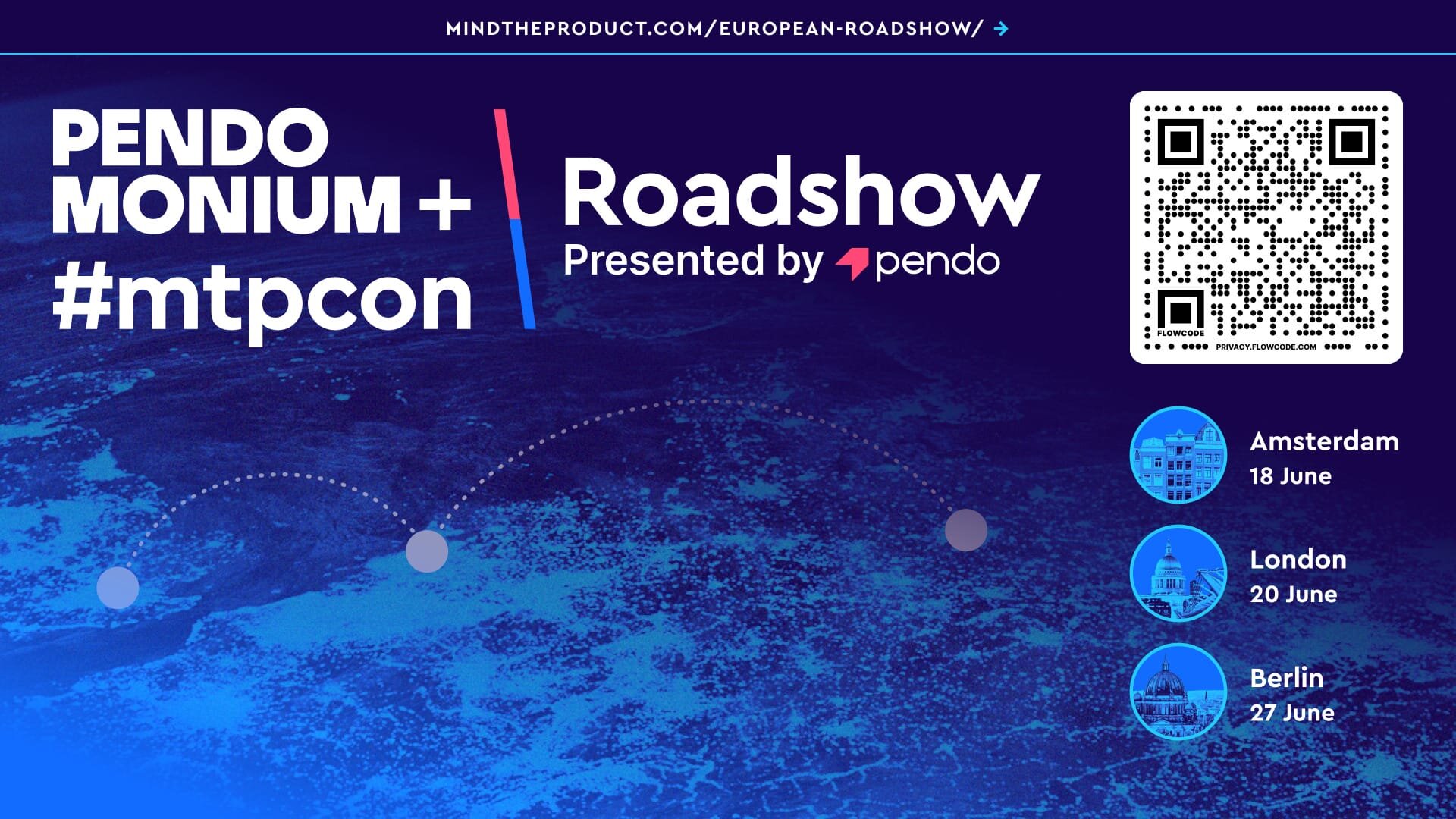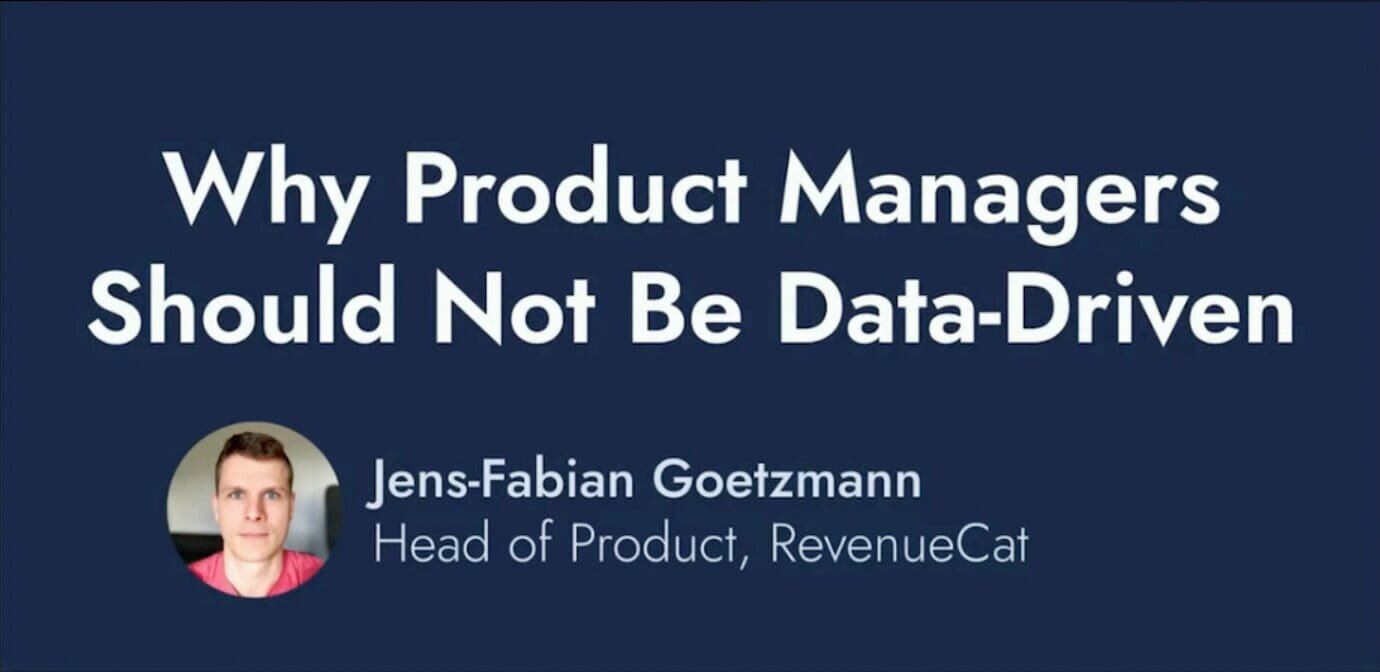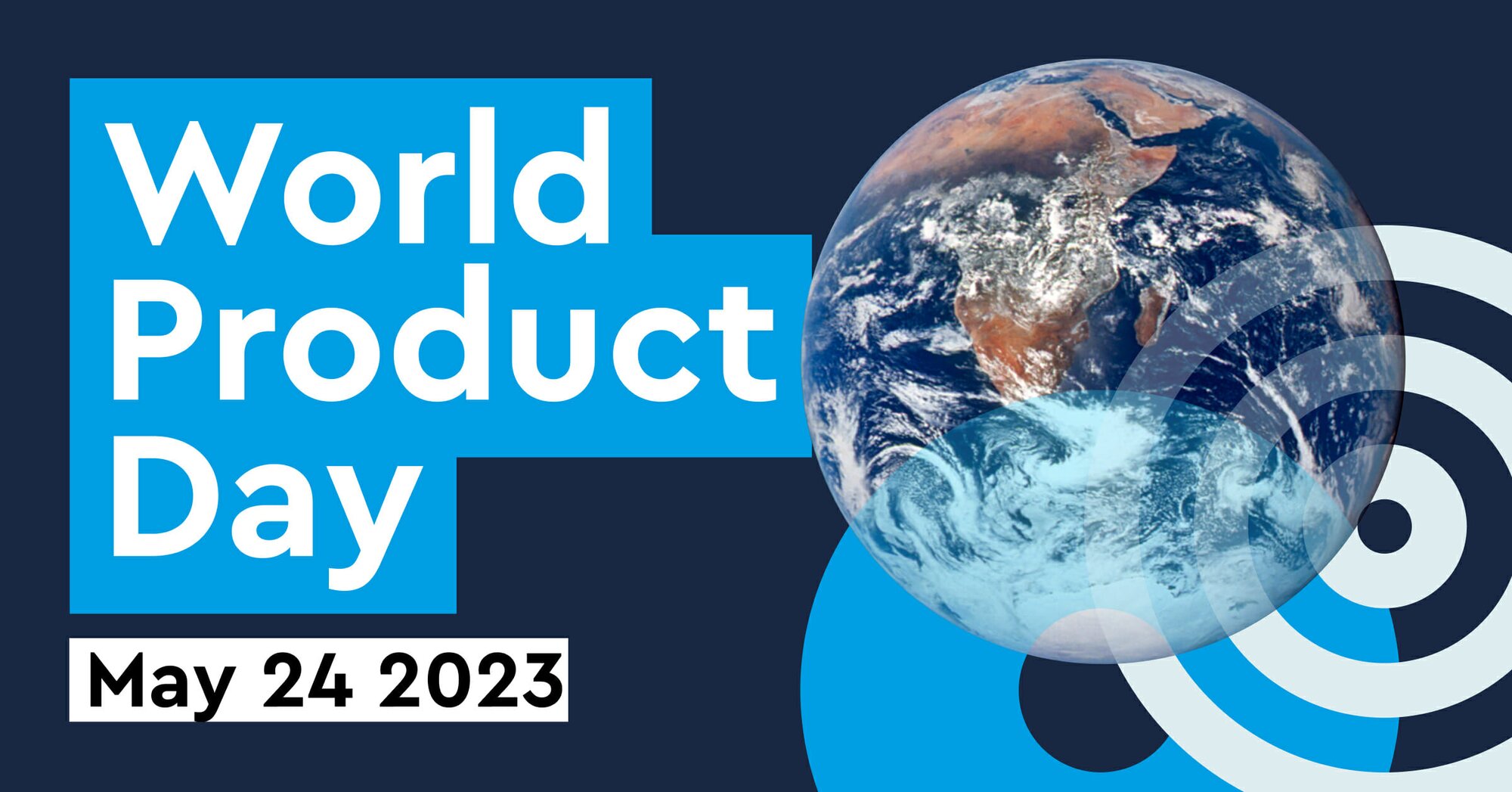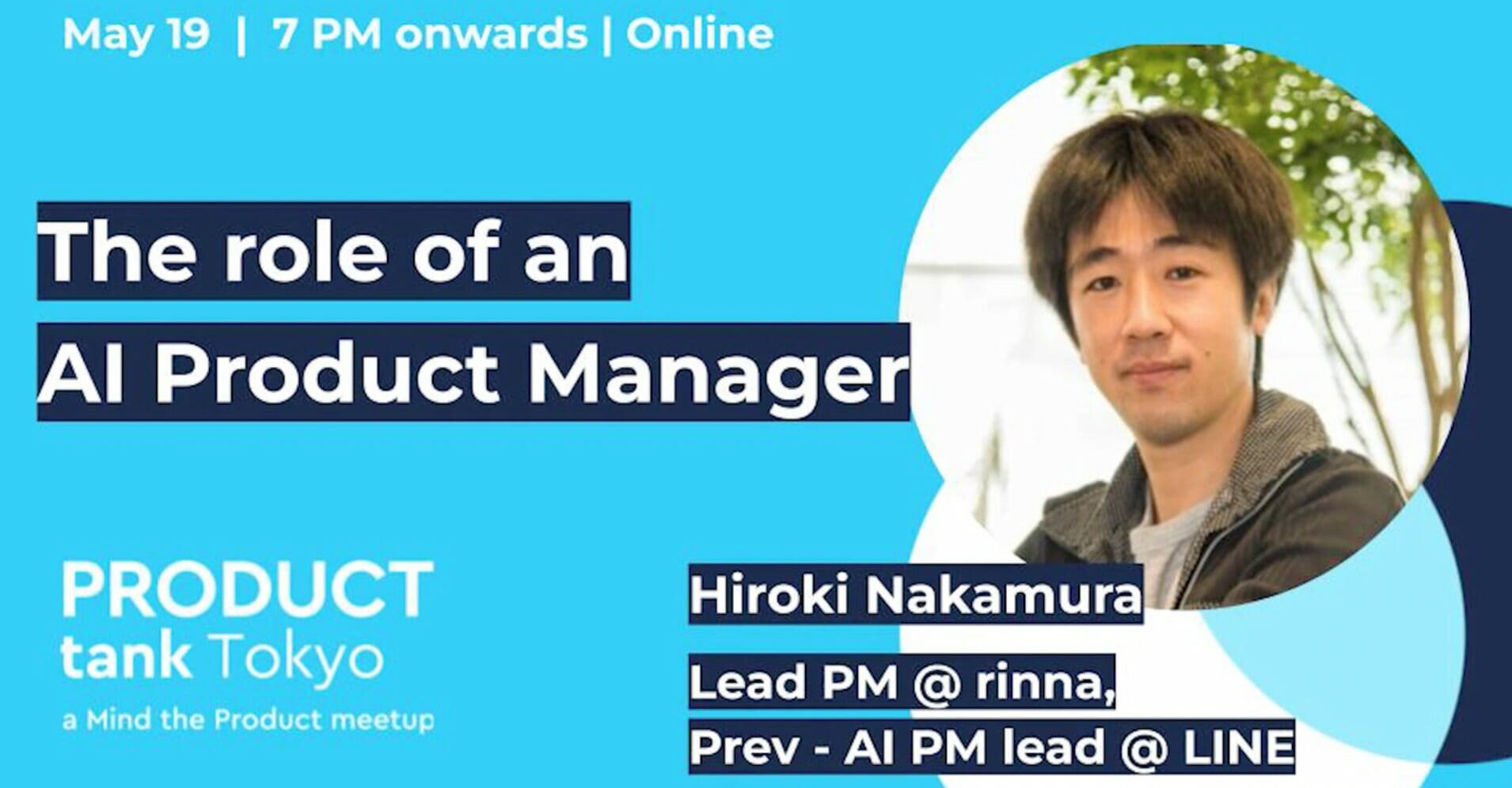In February 2015, a small group of enthusiastic Auckland-based product managers got together to hold the very first Product Management Auckland Meetup event. Now, 59 events and nearly 3500 members later here we've marked this milestone with five lightning talks on the theme, “How I’ve grown”.
Here you can watch the talks in full or read on for an overview of each.
Innovator’s Bias
First up was Belinda Simcox (otherwise known as Sim) whose talk, titled 'Innovator’s Bias', took us through a journey from Waterfall to Lean and Agile approaches, observing how the onward march of technology has driven customer expectations around the velocity of change.
With the rise of startups and startup culture, Belinda noted how organisations must embrace continuous experimentation and iteration in order to remain relevant as the pace of expected change and innovation accelerates – the old project focused approaches are too slow.
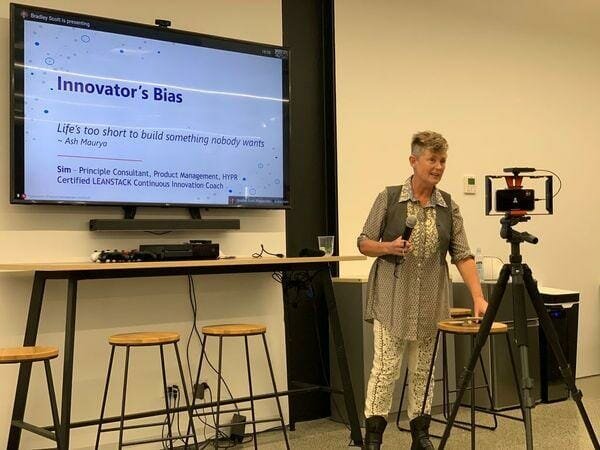
Innovators Bias, she told us, is where an innovator starts with a solution, which may or may not relate to a real customer problem – the innovator is biased toward their solution rather than the customer problem it solves. Belinda noted how in her early days the organisations she worked for started with very innovative solutions, however, the success of these solutions came down more to good luck than good planning as they just happened to align with a real customer need.
Belinda also discussed how these days the new innovators' focus is on speed of learning in order to gain a competitive edge. The best way to stay ahead of your competitors is to uncover what and why customers do what they do. Outlearning your competition, adjusting or pivoting faster than them, means you remain always relevant as the market changes around you.
The Odyssey of Data Analytics Products
Following Belinda, Dr. Ratneesh Suri took us through her journey into the world of data products with her talk titled 'The odyssey of Data Analytics Products'.
Ratneesh started with a bank as a strategy and operations analyst, which gave her the opportunity to collaborate widely across the organisation, learning about how each part worked. This started her on a journey which took her into the customer insights team, where she fell in love with data and how to use analytics to gain insight into how customers behaved. The team attempted to scale up the data science capability to make the bank become more driven by customer behavioural insights, however, the stakeholder priorities were different. Here is where she learned her first valuable lesson – nudge but do not nag in order to drive organisational change.
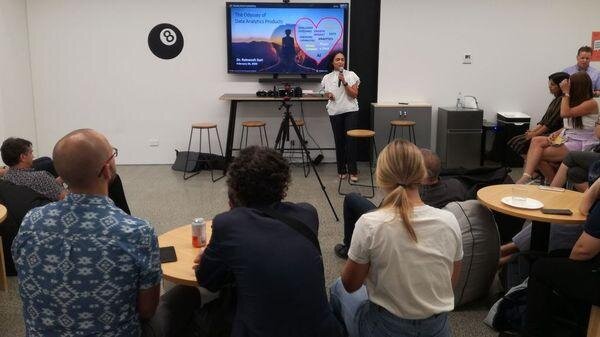
Next Ratneesh moved to an Insurance company to establish their Analytics and AI capability. Here she focused on changing the mindset of the organisation to move from data requests to using data analytics for competitive advantage and operational efficiencies, nudging the stakeholders to shift to a culture of collaboration instead of just requesting for raw data or reports or insights. Through concepts such as cross-functional teams and design thinking, she demonstrated how product thinking could be successfully applied to create dashboards and machine learning models that brought real value to the organisation.
Ratneesh then learned that the next step on this journey was to further shift the organisational mindset around analytics and insights to customer experience and business outcomes – start with the experience and the outcome you are looking to deliver and develop and operationalize data products to enable those experiences and outcomes.
Imposter Syndrome Isn't Always a Bad Thing
Next up was Anastasia Levina with her talk titled 'Imposter syndrome isn't always a bad thing'. Anastasia opened by noting how the Product discipline in New Zealand is relatively young, and hence those coming into the role naturally come from diverse backgrounds – e.g. BA, Designer, Project Manager or Developer. Anastasia noted how these diverse backgrounds mean that imposter syndrome is common in product as most of us have never done the role before.
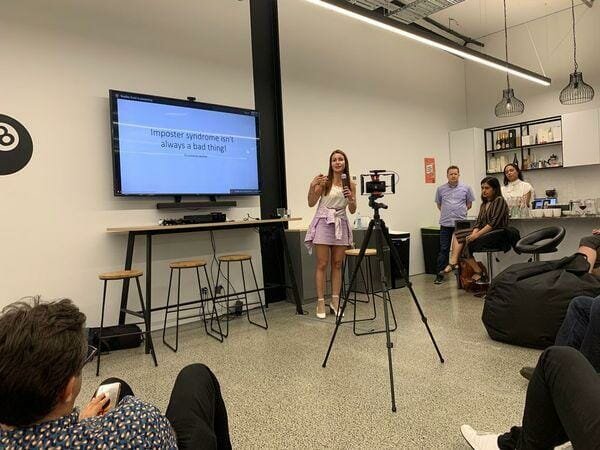
Anastasia found that applying her experience in analysis, digital marketing and digital strategy from her previous roles helped her to get past this, by finding elements that were relevant to the product role. She had a great mentor who helped her draw the line between this previous experience and her product role and realised that in order to be good at product you do not need to know everything about the role. The product role really benefits from knowing a bit about many areas of technology and business, so Anastasia is now finding that her diverse background is a real advantage. She found that all roads lead to Product, and this realisation has helped her to overcome her sense of imposter syndrome.
Lessons from a SAAS product launch
Next up was Chetna Chadha whose talk was titled 'Lessons learned from a SAAS product launch'. Chetna shared what she learned from a particularly high-pressure product launch, where the launch was critical to the sustainability of the business. The first thing she learned was that the hardest part of product management is people – she needed to convince a sales-driven CEO that the roadmap had the right items on it. She brought her sales training to bear, employing shuttle diplomacy to gain buy-in from stakeholders around the CEO, which ultimately convinced the CEO that this was the right direction for the organisation.
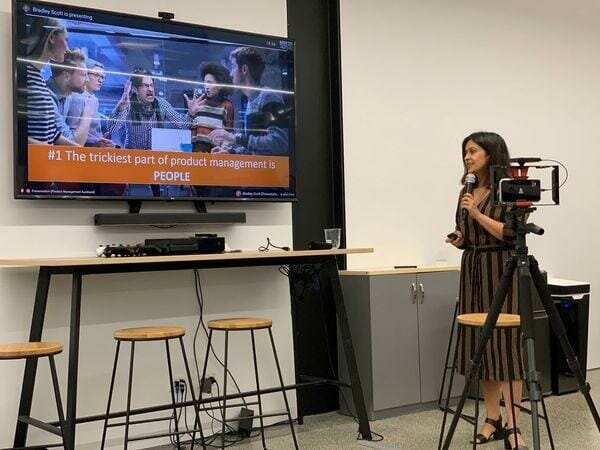
Her next lesson was to always have an elevator pitch for your product with a clear value proposition. The product that she was working on was trying to be too many things, and in hindsight, Chetna worked out that had she focused on a single, convincing value proposition, the product would have been a lot more compelling and marketable.
Her final lesson was to not ignore your instincts. She cited an example of a product workflow where putting a credit card signup page first made perfect sense from a customer and business revenue perspective, however, it did not feel right to her. Once the workflow was launched the dropout rate at this first screen was significant. From this, she learned to trust her instincts – to raise these kinds of issues early before they make it into the hands of customers.
Feedback Loops
Finally, in her talk 'Feedback Loops', Anna Schmidt shared a short story from her marketing past where she joined a branding committee, working through a staff and customer engagement survey exercise for a Healthcare organisation. While presenting the survey analysis to a group of stakeholders, one took issue with the way that the data was presented, noting that as it was not segmented, the conclusions may have lost their meaning.
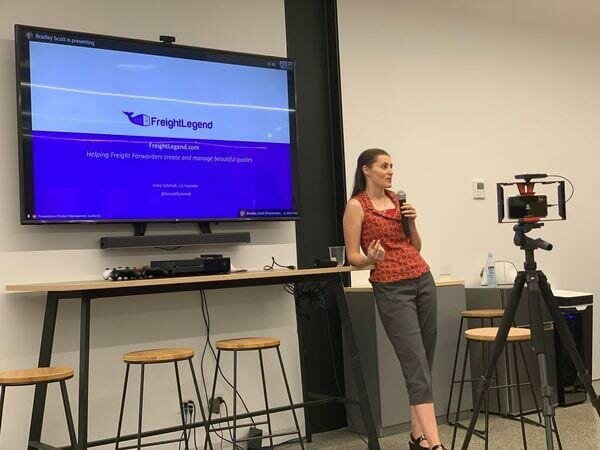
From this Anna firstly learned survey respondent time is valuable and should not be wasted. There would have been no opportunity to ask the same people a second time. Fortuitously, Anna had segmented data collection forms more than requested – this meant despite 'new' segmentation being requested the current data could be reassessed. Her second lesson was to always preserve raw data – having the raw data available Anna meant she was able to reanalyse and confidently represent her conclusions. The newly segmented date actually communicated the previous conclusion more clearly than previously!
Discover more ProductTank Communities
ProductTank brings together the local product community in 200+ cities across the globe. You can learn about the people who attend them and the volunteers who make them happen in our community stories. You can even share your own!


